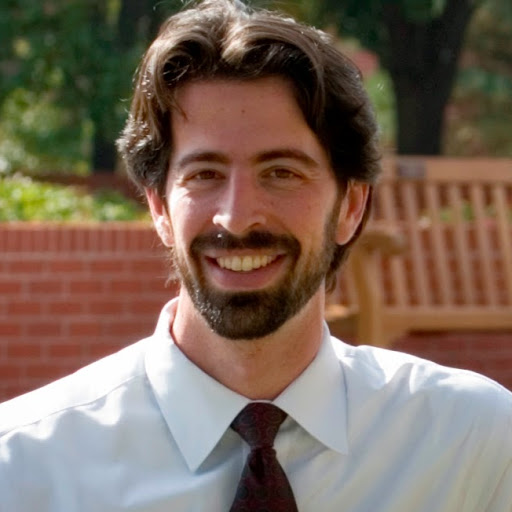Pictured: John Michener
Circumstances are Neither the Cause Nor the Cure
While the Joint Statement sounds compassionate and winsome, let us examine the three major underlying assumptions that are highly debatable and with which other pro-lifers and abolitionists disagree. They are:
1. A lack of resources causes people to sin.
2. Resources are not available.
3. Government should provide resources.
Why Do People Sin?
The first debate is over the cause of sin. Why do some individuals steal, kill, and destroy? Theologians and philosophers have argued the question for millennia. Do people sin because of something internal or external?
If sin is of internal origin, then it must be generated from something like human nature, depravity, or free will. According to this view, circumstances are only influencers, not determiners.
If sin is of external origin, then it must be generated from something circumstantial like poverty, physical or mental abuse, deprivation, or trauma. According to this view, circumstances are more than influencers; they shape humans to the point of irresistible outcomes.
While this may be an over-simplification of the debate, it does present the basic position of the opposing views. It is important to clarify the assumptions and implications of each view because they affect our response to sin and abortion policy.
Those who believe circumstances “drive women to seek abortion” tend to be less willing to criminalize abortion. Instead, they seek to meet the needs of pregnant women in desperate situations, to ensure that they are not abused, that they have adequate food, shelter, healthcare, and self-actualization. They imply that women only get abortions because they are victims on some level. If we just cared for women with unwanted preborn children, then they would not kill those children.
Those who believe in an internal locus of sin freely admit that circumstances are influencers. They, too, care about helping women in need. However, it is a false dichotomy to assume that a woman will either keep a child when resources are adequate or kill a child when resources are lacking. It is insulting to needy women to assume that they are immoral. Their moral quality is not equal to their subtotal of resources. They are not a byproduct of environmental factors, fated to be bullied by difficulties into committing heinous acts. On the contrary, they are made in the image of Yehovah, the one true God, and should be given the credit, value, and respect they deserve as fellow image-bearers. We should place faith in all women, as free moral agents, to choose to do right and work hard to make the best of a situation, even in less-than-ideal circumstances.
That is why we should not allow neediness to excuse or justify behaviors that ought to be criminal. The law is there to set expectations and uphold a standard worthy of human dignity. Because humans sometimes choose to sin, regardless of circumstances, the law must hold accountable those whose actions destroy innocent lives. We must criminalize the act of abortion itself.
Lack of Resources?
Regardless of the cause of sin, Christians agree that we do have an obligation to help fellow humans in desperate situations. We are commanded to love our neighbors, and we are given examples of self-sacrificing love that provides the basics for those in need, even when those people are religious, political, or cultural enemies.
In fact, in places like Oklahoma and Texas, Christians have been doing a good job of helping mothers in tough situations. They have been investing in and building up pregnancy resource centers for fifty years, and now these centers are proving more useful than ever before. There is not a major city that does not have at least one, and often multiple, centers. Resources are abundant. By way of example, check out all of the free pregnancy centers across Oklahoma at:
OklahomansUnitedforLife.org/resources.
Many different kinds of pregnancy-related resources are available through various faith-based, not-for-profit organizations: counseling, parenting classes, healthcare, adoption, baby items, housing, help landing jobs, and half-way houses for those in co-dependent or abusive relationships. They serve pregnant women, mothers of young children, fathers, adoptive parents, and even those who have lost a child. One such charity has food pantries stocked with vegetables and gives out diapers, wipes, and other baby items. Another teaches weekly parenting classes in English and Spanish, covering topics like appropriate feeding, potty training, and positive discipline. At one residential facility, women have immediate access to impromptu counseling of all kinds, from crash-courses in conflict resolution, to help soothing a colicky baby, to professional counseling sessions on setting lifegoals and transitioning to self-sufficiency.
Who Should Provide?
Note that this infrastructure has been established by private funding. Only in recent years has the State gotten involved, which brings us to a third debatable assumption in the Joint Statement, that “State and federal governments must take action” to provide resources.
Again, Christians and others already provide these services. And now, whether or not we believe it is a proper function of government, States are getting involved in a big way. Here are two examples among many. In 2005 Texas enacted the Alternatives to Abortion program. For fiscal year 2024, Texas has budgeted $70 million per year on pregnancy-related resources across the State. The State of Oklahoma passed a similar program called the Choosing Childbirth Act, and for fiscal year 2024, it has budgeted $2.9 million per year for pregnancy resources – a healthy amount in such a small State with under four million residents. The funds go to the afore-mentioned types of privately operated charities.
Conclusion
Many good people have co-signed the Joint Statement because they are focused on helping those in need, which is a worthy goal. The concern is with the promulgation of the assumptions that resources are unavailable, that governments should provide support, and the implication that individual women should not be held accountable for aborting their children – rather, government is somehow to blame for not providing adequate resources. While the Joint Statement sounds compassionate and winsome, its underlying assumptions make it divisive and problematic.
We have already seen this type of thinking influence politicians in Oklahoma and other “pro-life” States to grant legal licenses to women to commit murder by abortion, a policy that is morally indefensible. Sin is neither caused nor cured by external circumstances alone. Even when material support and assistance are available, some women still choose to kill their children. That is why fear of the law is essential to protect innocent preborn humans.
The good news is that with or without the State, God’s people continue to get on with the good work of providing abundant resources to mothers in need. The people of God love their neighbors, born and preborn. At the same time, they must insist on personal accountability for the shedding of innocent blood. It is not an either-or proposition; God expects both mercy and justice.
John Michener is the Director of Oklahomans United for Life (OUL). You can contact him at:
john.michener@oku4life.org










Latest Commentary
Thursday 30th of October 2025
Thursday 30th of October 2025
Thursday 30th of October 2025
Thursday 30th of October 2025
Thursday 30th of October 2025
Thursday 30th of October 2025
Thursday 30th of October 2025
Thursday 30th of October 2025
Thursday 30th of October 2025